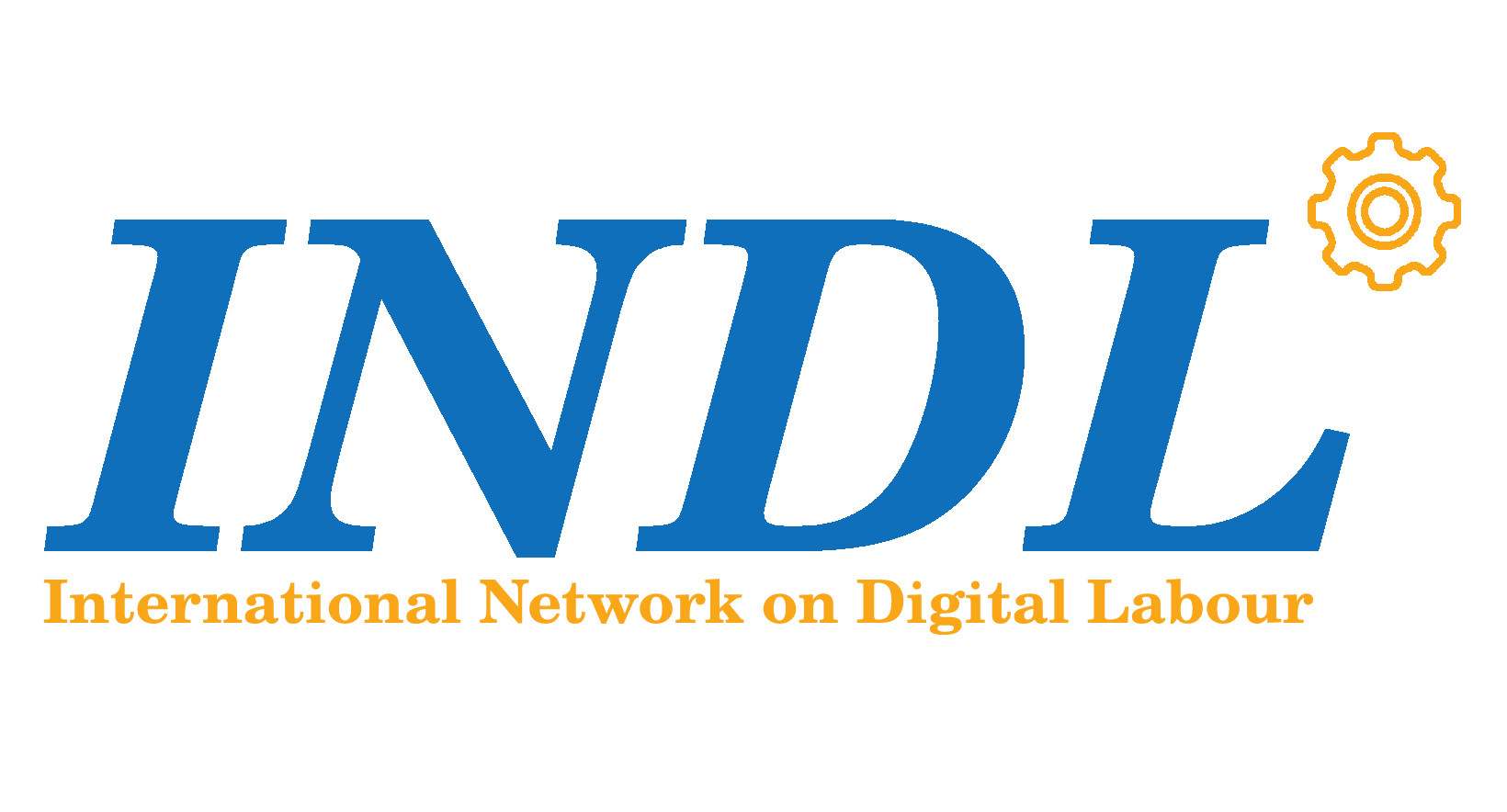Keynote Speeches
Keynote-1
“Inequalities in digital Labour”

Paola Tubaro, CNRS, Paris, France
Paola Tubaro is research professor (Directrice de Recherche) in sociology and technology at the National Centre for Scientific Research (CNRS). Trained as an economist before getting interested in sociology, she is at the Centre for Research in Economics and Statistics (CREST) on the Palaiseau campus just south of Paris. Her research is inter-disciplinary and leverages synergies between sociology, network science, and artificial intelligence. She is currently researching the place of digital labour in the global production networks of artificial intelligence, and social inequalities in digital platform work. She has also extensively published in the fields of data methodologies and research ethics. Until December 2015, she was a Reader in economic sociology at the University of Greenwich, London. She is also a Senior Fellow of the Higher Education Academy, and the co-convenor of the Social Networks Analysis Group of British Sociological Association.
The digital labour literature rightly highlights that present-day information and communication technologies do not always bring about more opportunities, and may sometimes generate new vulnerabilities by generalizing low paid and contingent work. However, its generic loss-of-labour-rights perspective masks differences among digital workers, and struggles to account for scattered, but growing evidence that race, gender, skill, and other gaps persist in these settings. Neglecting these differences may paradoxically reinforce them, turning research and policy attention away from the most needy.
The proposed presentation aims to refine our understanding of disadvantage in digital labour, comparing workers’ outcomes not only across contracting regimes – taking salaried employment as reference – but also within the world of platforms and similar technology-enabled forms of subcontracting and freelancing. I combine insight from the concept of ‘digital inequality stack’ and from relational inequality theory, in intersectional perspective. I use the former to explore how variations in skills and equipment differentially affect participation to, and earnings from, digital labour; and the latter to shed light on how platforms’ organizational design and technical infrastructure, combined with geographical boundaries, exclude certain workers. This multi-faceted approach helps to distinguish legacy inequalities (based for example on gender, class or migration status) that transfer from conventional settings into these novel workplaces, from emerging inequalities due to digitization and the technological and organizational transformations that it brings about.
While my presentation is mostly theoretical, it takes a deeply contextualized approach and leverages my fieldwork experience in European and Latin American countries (with about 3000 questionnaires and 150 in-depth interviews over five years).
Keynote-2
“Regulating Algorithmic Management at Work in the European Union”

Antonio Aloisi, IE University Law School, Madrid, Spain
Antonio Aloisi is a Marie Skłodowska-Curie fellow and professor of European and Comparative Labour Law at IE University Law School, Madrid. Previously, he was a Max Weber postdoctoral fellow at the European University Institute, Florence, and a visiting researcher at Saint Louis University, USA. He holds a PhD in Business and Social Law from Bocconi University, Milan. His research focuses on the impact of innovation on labour regulation and social institutions. The aim of his Boss Ex Machina project, which has received funding from the EU Horizon 2020 programme, is to map practices of algorithmic decision-making and assess the adequacy of existing legal frameworks for enabling data-driven workplaces. He has written several research papers and co-authored Your Boss is an Algorithm. Artificial Intelligence, Platform Work and Labour (Hart Publishing 2022, with Valerio De Stefano), which provides a compass to navigate the era of radical advancements such as the gig-economy, algorithmic management and digital surveillance. He tweets at @_aloisi
In recent years, algorithmic management practices have been widely adopted by employers to monitor remote work, analyse how applicants behave during job interviews, rate workers’ performance and calculate wage adjustments. As a consequence, the condition of workers being subjected to the upstream authority of managers has intensified. Employment protection legislation recognises the importance of curbing the bosses’ unilateral discretionary power by deploying several controlling factors. However, the traditional guardrails have now been displaced by the transformative impetus of data-driven technologies. As a response to this challenge, several European Union law tools could be pragmatically adapted to curtail the expansion of managers’ decisional leeway.
By applying a multidimensional, anticipatory and participatory approach, this paper integrates substantive and procedural rules that contribute to rebalancing informational asymmetries within workplaces and assesses the effectiveness of those rules. Using examples from case law, administrative decisions and legislative developments, it also discusses the mutually reinforcing relationship between data protection provisions and anti-discrimination measures, which renders automated decisions documentable and contestable. Beyond defensive tactics, this paper calls for the involvement of worker representatives in co-designing digital human resources policies. Indeed, as data are relational, collective bodies are uniquely placed to exchange information, raise awareness and bring claims, thereby preventing algorithmic abuses.
Keynote-3
“Surveillance as a means of business growth”

Valia Aranitou, NKUA, Athens, Greece
Valia Aranitou has studied economics and political sciences at the NKUA, Athens, and at the Université Paris Dauphine, Paris. She is an Associate Professor at the Sociology Department of the NKUA. Her research interests are the institutions and mechanisms of social representation, organization of labor and labor relations, as well as the theoretical and institutional relations between democracy and the economy. Since 2008 she is director of INEMY, the research institute of the Hellenic Confederation of Commerce and Entrepreneurship (ESEE). She has published many books and reports on SME entrepreneurship and the organization of trade economies.
Over the last twenty years, with the growth of the internet and social media, the business world has been in constant transformation. In Retailing, in the field of e-commerce, a leap is recorded in producing and exporting monitoring/surveillance systems based on artificial intelligence. Services such as facial recognition, voice recognition, retinal or fingerprint scanning, behavioral analysis, and classification are widely used identification systems from telecommunications to retail. While the improvement of customer service works as a good “excuse” for businesses to constantly look for extracting data and analytics, data is transformed into a new type of capital. Several scholars talk about a new face of capitalism using defining terms such as “surveillance capitalism” (Zuboff, 2019), “data capitalism” (Myers West, 2019 and Sadowski, 2019), and “platform capitalism” (Srnicek, 2016). It is argued that data that is now massively accumulated is processed by software and biometric technology companies, fed into algorithms, and used commercially for various purposes, including behavioral prediction, ad sales, search engine optimization, and others (Myers West, 2019). This drive by companies to accumulate as much data as possible through all available means is another type of capitalist accumulation of capital that allows for the systematic distinction of six forms of economic surveillance: the applicant, the workplace, the workforce, property, of the consumer and competition (Fuchs, 2013). Of particular interest is how the big 4 tech companies (Amazon, Apple, Google, and Facebook) are deepening their strategy in the field of the retail industry by developing tools and functions that allow them to connect users more and more effectively with the products/services they desire. These tools and services are associated with a particular type of capitalism, which seems to be morally legitimized in the period of the covid-19 pandemic. In this context, scholars argue that the latter was invented in the years of the neoliberal consensus, where the state was seen as an obstacle to free enterprise. On September 11, 2001 the terrorist attacks on the Twin Towers are considered a milestone in the evolution of entrepreneurship. This tragic event grounded the feeling of fear in Western societies. The focus shifted from privacy to mass monitoring and surveillance. At the same time, the internet was starting to globalize and become an instrument in everyday life for everyone. On behalf of national security, we get used to smartphones, mobile devices, social networks, apps, and detailed tracking of our daily movements, locations, and ultimately personal lives. Therefore, businesses engaged in collecting and processing data on behalf of their services optimization. This presentation aims to outline how the new breed of consumer surveillance businesses is building their growth, profitability, and ultimately power by accumulating and interpreting data. Could a democratic arrangement of this type be achieved between businesses and consumers, digital companies, and internet users, so that the latter are in control of the data they generate? How feasible would it be to adopt Tim Berners-Lee’s position that users take mastery of their data by owning their digital identity and creating granular data-sharing agreements via internet? Could this model form the ground for a universal basic income (UBI)?
Keynote-4
“Platformisation in developing countries: Informality, precarity and inequality”

Uma Rani, ILO, Geneva, Switzerland
Uma Rani is Senior Economist at the Research Department of the International Labour Office, Geneva. She is a Development Economist and has conducted research in informal economy, minimum wages and social policies. Since 2016, her research focuses on transformations in the digital economy, wherein she explores how labour and social institutions interact with public policies and can provide decent working conditions to workers. She has recently coordinated the publication of the ILO flagship report, World Employment and Social Outlook 2021: The role of digital labour platforms in transforming the world of work.
Platform work has gained prominence within the development agenda in recent years, as it is viewed to have the potential to create income and employment opportunities. Some researchers have argued that platform work could be a vehicle for addressing poverty and inequality in developing countries as digital labour platforms provide workers with access to global labour markets. Further, it is also argued that such platforms help in the process of formalisation as they mediate between the worker and the client. In this context, this keynote speech will present some of the challenges that platforms pose for developing countries, reshaping their economies and labour markets. It will then discuss the rise of online microtask and freelance platforms which are the latest manifestations of outsourcing services and its implications on the working conditions and skill development of workers. It will argue that within the development context, higher education is supposed to lead to high quality employment both in terms of income as well as the content of work, but this trend of platformisation is instead leading to deskilling of highly educated and skilled workers without any income and job security. Further, some of the tasks that such workers are performing are also morally and ethically questionable, which raises concerns about the contributions of this type of work, if any, to the productive development of the economy and society in developing countries. It will finally also discuss how major platforms in the taxi and delivery sectors are capturing markets in these countries and creating disruptions in the labour markets and precariatising and controlling workers using algorithmic management practices. This process of platformization in developing countries has implications on sustainable development and risks exacerbating inequalities within and between countries.
Keynote-5
“Incentives and information-implications for platform labour regulation and worker organisation”

Otto Kässi, ETLA, Helsinki, Finland
Dr. Otto Kässi is an economist at Etla Research, a senior researcher at Turku Centre for Labour Studies, and a research associate at the Oxford Internet Institute. He got his PhD in economics from the University of Helsinki in 2014. The topic of his doctoral dissertation was income inequality. Since then, his research has concentrated on understanding the scope and growth rate of platform labour and its macroeconomic implications. He has also consulted international organisations such as the OECD and the ILO on topics related to the platform economy. More recently, he has also worked on studying the long-term effects of state aid related to the COVID-19 pandemic on workers, firms, and the macroeconomy.
There are at least 160 million registered online workers on remote online freelancing platforms, but only a minority have earned any money, let alone any substantial income. The high share of zero earners implies that while digital freelancing has grown substantially, it is still not a viable source of income for most workers. This talk explores the labour economics of platform-mediated work from two angles. First, I discuss why the supply of work outweighs the demand and its implications for policy. Second, I discuss selected regulatory interventions proposals on labour platforms and their likely effects.
